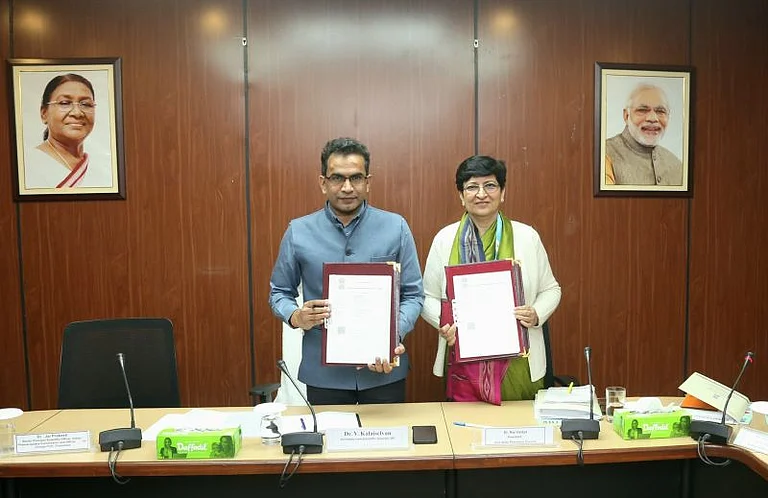- You are an area sales manager for a soap marketer. You are in cahoots with a senior man at the factory, and with the local distributor. A consignment has left the factory and will reach you in another two days. The factory man sends you a fax that it has been detected after shipment that part of the consignment did not pass quality control and should therefore be destroyed. The consignment arrives, you fax back that the low-quality soaps have been destroyed. Of course, you send the full consignment out into the market, and you, the distributor and the factory accomplice share the sales proceeds of the "destroyed" soaps.
- The time has come to release that statutory unaudited annual results ad. You, the finance chief of the company, give your advertising agency the figures, swearing the executives to complete secrecy. The figures show a 59 per cent rise in turnover and 110 per cent rise in profits. As you had anticipated, the admen quickly let the news out to friends who let it out to their friends. There's a bull run on within hours, and the stock price rises by 17 per cent in two days. That's when you sell the 10,000 shares that you picked up a few days ago, and give the agency the actual figures, which show that the company's turnover has grown by only 11 per cent and profits have dipped by 7 per cent.
- An advertising manager, you set up a dummy billboard company, and approve vouchers for setting up a billboard at an out-of-the-way location, like somewhere on an obscure highway. In reality there is no billboard and no one is likely to notice. But the money is paid.
"The key to fraud control, therefore, lies in preventing the frequency of frauds," says Navin Dave, managing partner, India, for KPMG Peat Marwick, which has conducted the first-ever survey into the extent of fraud in the largest businesses in corporate India. The survey provides some startling insights into the world of big-time fraud, into how millions of rupees are swindled by employees and managers, often in collusion with a third party.
How serious is the threat? More than half of the 72 business houses which responded to the survey said they had experienced fraud during the last financial year. "They reported frauds that left them deceived of over Rs 10 lakh. The total losses reported by these companies was Rs 45 crore but this figure would be much higher, considering that economic frauds like information theft, product theft, product substitutions, patent infringement, bribes and secret commissions and kickbacks are not so easy to put down in monetary terms," says Dave.
What is significant is that 87 per cent of managers feel that the incidence of fraud will either increase or stay the same. "The new economic prescriptions of empowerment of employees, delaying and outsourcing have a downside too. Fraud is bound to increase in the initial stage of globalisation as businesses are becoming transnational and too big to be monitored effectively from the top. The inability to value-add at the top is pushing decision-making down but the corresponding upward push of accountability and reporting is not taking place. The gap leaves lots of room for fraud," says Pradeep Kapoor, chief executive, finance, at Modifin. "Economic pressures in terms of increased wants and inability of incomes to keep pace would be one of the major factors perpetuating fraud," says Rakesh Chopra, business head at Escorts Agrimachinery Business.
"Liberalisation is polarising the society into those with the global mindset and the inward-looking mindsets. Those with sound roots would refine business practices while others would rationalise business practices in terms of all-pervasive corruption. Fraud is bound to increase in this fluid situation, at least in the short term," says J.P. Singh, managing director of Apex Training Institute.
About 29 per cent of corporates said criminals are becoming more sophisticated in their act. "Computerisation does have a flipside in the speed and sophistication of frauds it allows for," says Dave.
Some 9 per cent of corporates did feel that fraud would actually come down. "The biggest reason is that managements are being forced to clean up their act, become more transparent, investor-friendly and professional in their approach," says Vikram S. Shriram, joint managing director, DCM Consolidated Ltd.
What are the most common frauds? The most common forms of fraud, feels corporate India, are padded-up expense accounts and inventory theft. "The expense account billing by an employee is most difficult to verify and most managements would not question it because these acceptable losses are cost-prohibitive to reduce," says Kapoor. And when the employees are certain that the company has no way of verifying it, they would go ahead and deceive the employer. Because, as Dave puts it, "we have ahypothesis that 20 per cent people in an organisation are most unlikely to commit a fraud, 20 per cent would be prone to commit a fraud and that 60 per cent people would be susceptible to it if presented with the chief ingredients of fraud, termed GONE, which stands for Greed, Opportunity, Need and Expectation of going scot-free."
Inventory theft was perceived as the second-most frequently occurring fraud. On pilferage in the infotech industry, P. Gandhi, director, Integra Tech soft, says: "In the computer business, pilferage by the engineers and technical staff is often most difficult to detect." Computer parts like motherboards, floppy drives and memory modules, for example, can be easily smuggled out and, despite the best inventory control practices through streamlining approvals, a foolproof system may be elusive. There is also the problem of discounts and commissions that marketing and sales personnel may pocket. "At the time of upgrading a machine, local spares are easily substituted for branded ones and we do it routinely. That's the only way to keep margins high," says a nonchalant dealer for another leading computer firm.
Some other common internal frauds, according to the survey, are purchase for personal use or unnecessary purchases, kickbacks, information theft, petty cash theft, cheque forgery, phantom vendors, non-accounting of bounced cheques, purchase irregularities and leaking of trade secrets.
AMONG the main types of external frauds reported were bribe and secret commissions, which accounted for 31 per cent, followed by patent infringement, false invoices, product substitution, and others. What actually allowed these frauds to take place? "Poor internal controls and collusion between employees and third parties," says Chopra. The report supports this contention. "In very many cases when employee reference checks are not made, there was over dependence upon a single person, untimely submission of monthly reports and inappropriate examination of management information systems (MIS)and other records. It could lead to a situation of fraud creeping into the organisation," adds Chopra. Some corporates reported that it was management override of internal controls and a poor or non-existent corporate ethics policy that contributed to an environment conducive to fraud. "There will be fraud if there is no value system that binds employees," says Gandhi.
How do you check white-collar crime? Fraud doesn't happen overnight. "Organisations often show tell-tale signs, which we call red flags, that should warn managements," says Dave. For instance, an employee with a lavish lifestyle beyond his salary, or sales or income decreasing while accounts payable and receivable are on the rise. Other red flags to watch out for are the company's line of credit being used to its limit for long periods, significant excess inventory or an increasing number of adjusting journal entries at year-end.
Similarly, fraudsters may defy a stereotype but they would have an uncanny similarity in tending to be compulsive—a workaholic, or prone to alcohol or drug abuse. Other potential fraudsters are those around you who appear to be unable to deal with pressure. And all fraudsters share the ability to rationalise theft and exploit internal control weakness to cover up fraud. That perhaps explains why about 19 per cent of the respondents felt they had warnings on the possibility of fraud occurring but these were either ignored or not acted upon fast enough.
Are we tough enough with fraudsters? Most Indian companies are tough on fraudsters, says the report. In 86 per cent of the cases, companies either dismissed the employee or permitted him to resign. "But the key to fraud control would lie in prevention rather than cure. Managements have to be exemplary in their conduct," says Chopra.
"Increased internal audit and staff rotation policy rather than security services are the answers to fraud control," says Shriram. "The trouble with Indian corporates is that internal controls are not seen as investments because they do not have any visible impact like say investment in technology or salaries. But the world over there is a re-emphasis on internal control. Indian corporates must realise that internal control does not mean complying with statutory obligations. It means actual checking for fraud with a view to prevent it," says Kapoor.
"Our survey aims at this kind of proactive approach to fraud awareness and detection," says Dave. KPMG proposes to follow up the survey with awareness seminars and training programmes with the Institute of Chartered Accountants of India, the Internal Auditors Institute, insurance companies and the white-collar crime cell of the police. "If we can contribute towards reducing material loss or psychological stress, we would have done our job," says Dave. Meanwhile, watch that accountant who hasn't taken leave for the last two years.


























